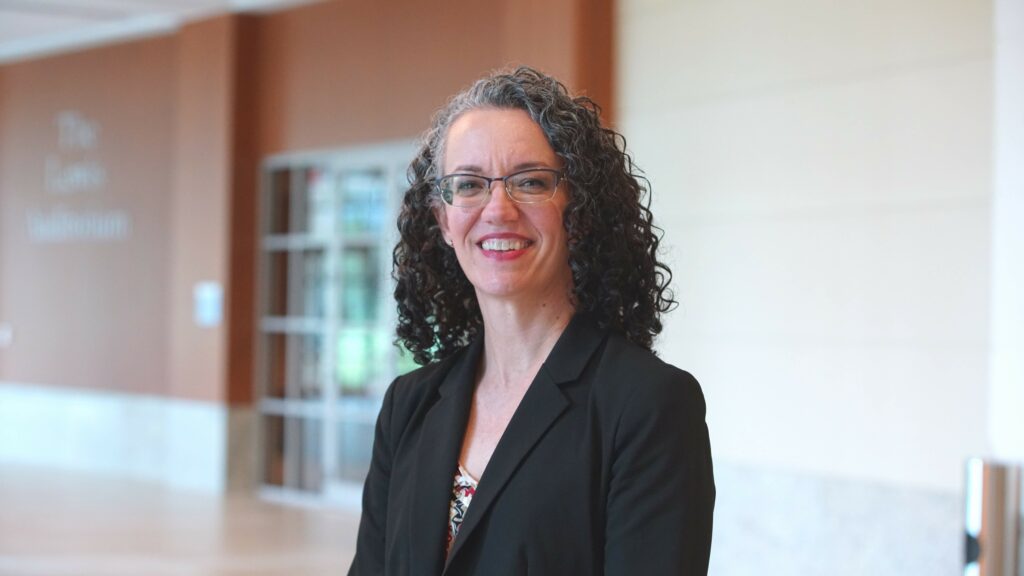
During times of uncertainty, loss and trauma, people often turn to their religious leaders for comfort. But more than 18 months into the COVID-19 pandemic, many clergy find themselves counseling their communities without adequate training or resources.
“We needed help for the helpers, who help others, and so they can also help themselves,” said Pastor Keith Tower of HighPoint Church in Orlando. That’s why he turned to the College of Medicine’s Dr. Marcy Verduin, a nationally recognized psychiatrist who also serves as associate dean for students.
Pastor Tower helped organize the Every Nation Church Conference this summer that addressed the pandemic’s emotional impact on clergy and their congregants. He invited Dr. Verduin to speak. For two hours and in front of 500 attendees, she used clinical examples to explain what happens to the brain during depression and the changes that can happen after therapy. She said her goal was to illustrate the importance of good mental health and help clergy understand that a mental health condition – like a physical illness – is a disease. Dr. Verduin’s presentation was so impactful, she has been invited to speak at other conferences worldwide, so far reaching 4,000 clergy who minister to a quarter of a million people,
“Pastors are overwhelmed with the mental health issues they are seeing in their communities and are not sure where to turn,” she said. “We talked about the signs to look for in depression- to look at it as an illness with symptoms such as loss of energy, appetite, sleep and persistent sadness that can be caused by genetics and the environment and how to support people who were suicidal.”
In July, Dr. Verduin spoke via Zoom to pastors in Asia. Many clergy were from the Philippines and spoke about how the nation’s financial woes and extended lockdowns have contributed to anxiety and depression.
During the session, Dr. Verduin saw pastors recognizing their own need for mental health support. Others identified signs of depression in their own family members.
“The pastors are not trained to diagnose mental illness,” said Dr. Verduin, who offered step-by-step guidance on how clergy can identify signs of depression as well as how to identify and acknowledge their own self-care needs.
“We covered strategies for burnout and how to deal with compassion fatigue, and how to implement a self-care plan,” she said, “To really give themselves permission to take care of themselves.”
Pastor Tower believes the sessions are having a global impact and is planning more.
“The need is great and people are hurting,” he said. “Churches are divided, by race, economics and COVID, and it’s incredibly demanding on our pastors. They needed to hear from an expert that they can relate to.”
“After one session, a pastor who ministers to college students said the session gave him hope, and he no longer thought he was going crazy. He even said he previously had suicidal thoughts.” said Pastor Tower.
Dr. Verduin hopes the sessions will encourage pastors to recognize warning signs of mental illness and eliminate the stigma of seeking professional help. She has been invited to speak at another conference later this year for clergy in Europe.
“I loved it,” she said of the experience. “I love to teach and it was exciting to see how much they wanted to learn and help their communities.”